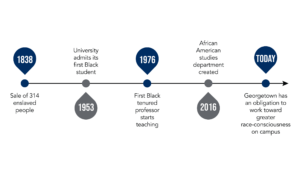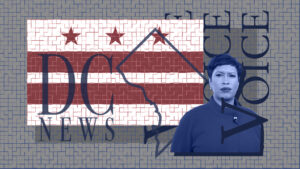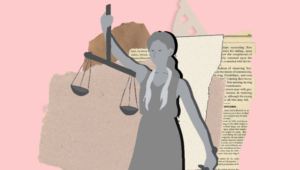To celebrate completing her Ph.D at the University of Cambridge, Amelia Louks posted a picture on X, formerly known as Twitter, proudly displaying a physical copy of her thesis entitled “Olfactory Ethics: The Politics of Smell in Modern and Contemporary Prose.” The post quickly went viral, amassing over 120 million views and attracting thousands of negative responses from the right-wing fringes of X. The responses overwhelmingly denigrated her work as useless and just another example of leftist academia’s waste of time and resources.
This discourse is emblematic of the American right-wing’s all-encompassing attack on the humanities. Sounding the alarm on the dangers of so-called “liberal universities” has become a cornerstone of the modern conservative movement and the rise of the Trump Administration, as right-wing politicians and media personalities aim to discredit the academic disciplines that provide their constituents with the tools to question pernicious systems of power and oppression.
This is all part of a broader cultural landscape that devalues a humanities education simply because they supposedly fail to teach skills that are easily commodifiable in a capitalist job market. Anyone who studies a discipline like English, History, Black Studies, or Women’s and Gender Studies is no stranger to questions like, “so, what are you going to do with it?” Plans for law school (especially corporate law) often seem like the only suitable answer to this line of questioning.
In this sense, majoring in the humanities presupposes a level of privilege: you have to run the risk of taking on a job whose salary may not be enough to pay your living expenses, an option only available to those who can rely on financial assistance from their parents. Seemingly as a result of these pressures, the study of English and History has fallen by 17% in the U.S. over the past decade.
Although students of the humanities frequently face the existential question of what they’re supposed to “do” with their lives, anyone should be allowed to study the humanities and produce new knowledge for its own right. In the case of English majors, for example, it is important to have members of society who can think critically about the media we consume, investigate how the written word can be entangled in larger systems of oppression, and use literature to imagine alternative ways of organizing our lives.
As English majors working through our thesis program, my classmates and I find ourselves asking if the work that we are doing “matters” or has “stakes” to seemingly justify our willingness to commit to a year-long project of this nature. While visiting class one day, my faculty mentor, Professor Manu Chander, taught us how to manage our time and fight off the pull of procrastination. The most important lesson he instilled in us, however, was that our projects matter, no matter how niche they seem. He asked us to write the following sentence in our notebooks: “I am responsible for the advancement of humanistic knowledge along ethical lines.” This serves as a reminder that the act of producing new knowledge pushes us towards a better world and is valuable in its own right.
Beyond producing valuable knowledge about the complex textures of human society, a humanities education provides its students with the critical tools to challenge systems of power. In Burn This Book, Toni Morrison writes, “truth is trouble. It is trouble for the warmonger, the torturer, the corporate thief, the political hack, the corrupt justice system, and for a comatose public. Unpersecuted, unjailed, unharassed writers are trouble for the ignorant bully, the sly racist, and the predators feeding off the world’s resources.”
It is no wonder that the American right wing and the Trump Administration, in their increasingly transparent efforts to drag the country into authoritarianism, would target the thinkers and writers who have the power to challenge them. If our society is to thrive, we need a strong collection of writers and thinkers who possess the skills to excavate our cultural and historical past, interrogate our present, and chart the path to more equitable futures.
Humanities degrees provide us with critical thinking and media literacy skills to expose the smoke screens of anti-immigrant and anti-LGBTQ rhetoric. These disciplines teach us to unabashedly recognize the humanity of others; the study of literature specifically invites us to step into perspectives that aren’t our own. Reading fiction has been proven to foster empathy, which has been in short supply as the mainstream media and our elected representatives have turned a blind eye to the American taxpayer-funded genocide in Gaza. Through the study of disciplines like Afrofuturism and Queer theory, humanities degrees give us the creative space to imagine alternative ways of being and dismantle the economic systems that incentivize inequality and the destruction of our planet.
The Trump administration has not just attacked the humanities, but academia at large. Universities across the country face budget cuts and subsequent hiring freezes due to the administration’s elimination of various federal contracts and research grants. Not even STEM fields are safe, with freezes on the National Institute of Health imperiling thousands of grant applications and research projects. Widespread book bans and the Trump administration’s recent takeover of the Kennedy Center are also emblematic of a rising culture of artistic censorship. Not to mention, the administration’s attack on Diversity, Equity, and Inclusion across all sectors of American society threatens writers, scholars, and artists whose work meaningfully deals with matters of race, gender, sexuality, and other facets of intersectional identity.
The weaponization of ICE and DHS has shown that the threat to academic freedom and free expression at universities is no longer hypothetical. In the past few weeks we have seen the deportation of Columbia student Mahmoud Khalil and arrest of Georgetown postdoctoral fellow Dr. Badar Khan Suri, who were targeted for their Pro-Palestinian speech.
The class of 2025 will be graduating into a political landscape increasingly hostile to academic freedom and unfettered artistic expression. If you are a student of the humanities, or simply a lover of culture, art, and languages, remind yourself of this: even as university programs are defunded and your favorite books banned, continuing the work (whether that’s literary criticism, studying forgotten histories, or creating art) is a form of resistance. We must always emphatically reach for the truth.
The Georgetown English Undergraduate Council, a group of students in the English Department, have developed a crowd-sourced list of action items beyond protest or voting. You can read and contribute it to here.
Editor’s Note: This piece has been updated to correct the source of the crowd-sourced list of action items. It was compiled by the Georgetown English Undergraduate Council, not the Georgetown University English Department itself.





